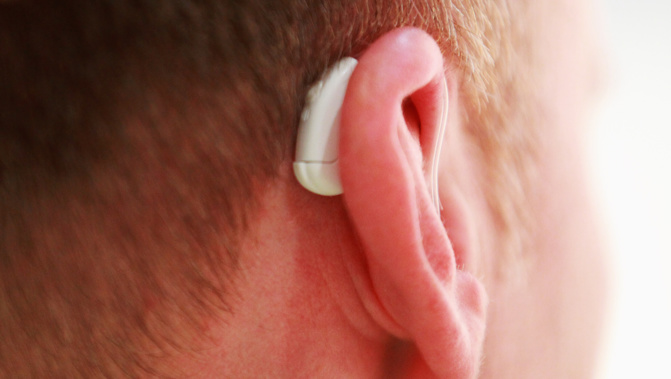
Mask use has become second nature to us over the past 18 months, but their presence on our faces hasn't been smooth sailing for everyone.
Hearing professionals are seeing a rise in hearing aids being lost as a result of mask wearing, which has led to a rise in insurance claims.
Hearing New Zealand president Lisa Seerup says her clinic is seeing three to four insurance claims a week, and one week had two dozen.
She says usually it would take six months to a year to see that many claims.
"Every week we are seeing insurance claims, and that's certainly something we've never seen before."
She says 80 per cent of hearing aids are now behind the ear, and if you put the mask behind the ear, it gets caught and can easily be flung.
New Zealand Audiological Society immediate past president Chessie Egan says she believes it's a real problem.
She says her clinic has dealt with insurance companies "quite considerably" since March last year, when mask wearing and PPE use ramped up.
Egan says there have been accounts from different audiologists and audiometrists from around the country about the loss of hearing aids due to mask wearing.
"Especially when people are pulling the mask on and off for various tasks, like drinking cups of tea or moving between spaces and in and out of cars. Often this will pull off the hearing aid, because there's just not much real estate on the ear itself if you've got glasses, masks and hearing aids."
Egan says the wire of the hearing aid can get tangled in the elastic of the mask.
"When they're pulling off their mask or their glasses, the hearing aid can become dislodged and fall, either while they're walking, or depending on where they are of what they're doing at the time."
She says while people should hear things don't sound as clear, when you're in the middle of doing something and the other hearing aid is still working, that perception is lost.
Egan says some of her patients are medical staff who are quite careful wearing their hearing aids, but have unfortunately lost them.
She says people should make sure their hearing aids are covered under their contents insurance policy.
"It's very important to ensure when you get your hearing aids fitted, you let your insurance company know that you have these medical devices that are worth a considerable sum of money, to ensure that if anything happens in the event of it getting lost, that you can get it replaced."
Egan says otherwise, people needing to replace their hearing aids would have to purchase them.
She says it's likely there are people out there who have had this happen, but can't afford to replace them.
Seerup says the problem with it being an insurance claim is a lot of renters don't have contents insurance.
"So, it really does affect more of your marginalised communities that can't afford to repurchase hearing aids, because they don't have insurance. If you actually have a higher income and insurance, then the insurance will cover it, but you have to have better insurance."
She says the average out of pocket cost of hearing aids is somewhere between six and ten thousand dollars after a Ministry of Health subsidy.
Seerup says Hearing NZ has initiated a re-purposed hearing aid programme where people who no longer need their hearing aids for whatever reason can donate them.
She says those with the capacity to be programmed for people are tested, cleaned and professionally reprogrammed for people who are unable to get insurance or find other funding.
Egan says there are some strategies to minimise the risk of losing a hearing aid while wearing a mask.
"There are 3D printed mask adaptors that pin the elastic of the mask behind the head, rather than on the ear."
She says while the open fit hearing aid is more comfortable, there are other options, such as a moulded hearing aid, which fits more securely.
Seerup says she too recommends the holders that fix the masks behind the head rather than the ear, or the masks which Velcro behind the head.
Otherwise, she says there are string hearing aid holders, which work similar to glasses retainers, so if the hearing aid were to be flung off by the mask; it would still be attached to the ear.
Take your Radio, Podcasts and Music with you









